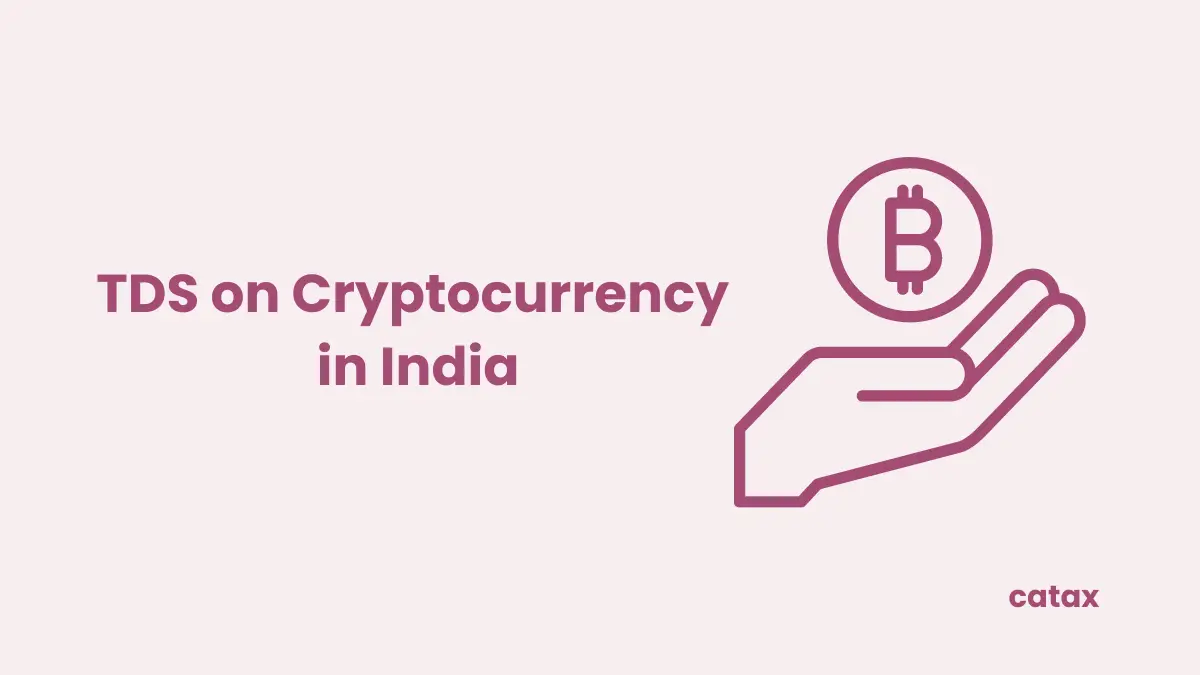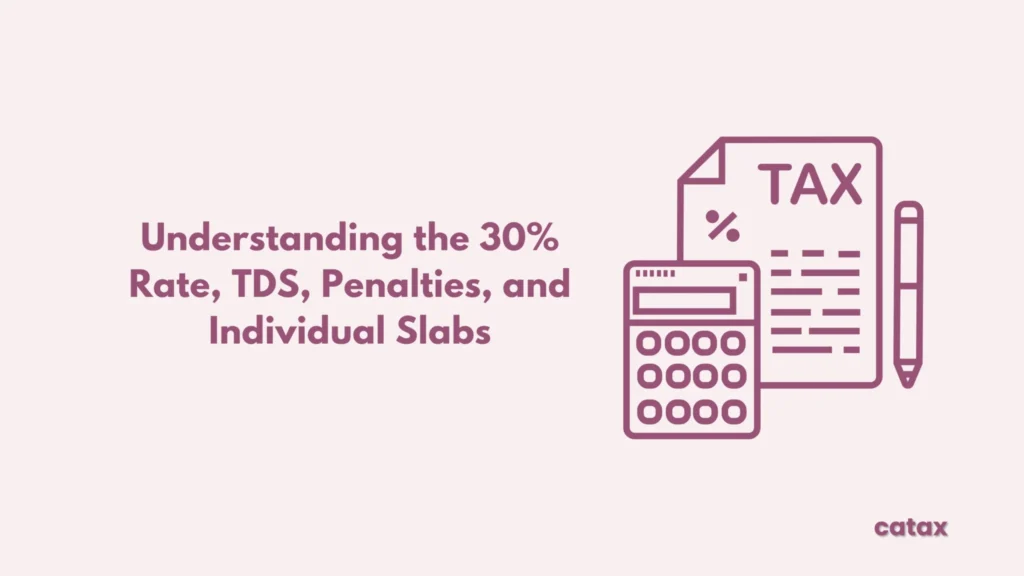The cryptocurrency landscape in India is dynamic and vibrant, attracting a flurry of activity from investors. However, amidst the excitement, the complexities of taxation can often perplex even the most seasoned individuals. One critical aspect that demands special attention is Tax Deducted at Source (TDS). This comprehensive guide aims to shed light on TDS as it relates to cryptocurrency transactions in India.
Understanding TDS:
Imagine a scenario where a portion of your income is automatically deducted before it even reaches your pocket. That’s essentially what Tax Deducted at Source (TDS) entails. In the context of cryptocurrency transactions, TDS is governed by Section 194S of the Income Tax Act, 1961. This section mandates a 1% TDS on the purchase or sale of Virtual Digital Assets (VDAs) exceeding specific thresholds.
When does TDS apply:
Understanding that Tax Deducted at Source (TDS) doesn’t apply to every crypto transaction is crucial. Instead, it kicks in under specific circumstances. TDS becomes applicable only when the total value of crypto transferred in a financial year exceeds certain thresholds:
- ₹50,000 Threshold: This threshold applies to most transactions conducted on crypto exchanges, peer-to-peer (P2P) platforms, and transfers made overseas. If the total value of crypto transferred within a financial year surpasses ₹50,000, TDS is triggered.
- ₹10,000 Threshold: Particularly relevant for P2P transactions, where the responsibility for deducting TDS falls on the buyer. In such cases, if the total value of the crypto transaction exceeds ₹10,000, TDS becomes applicable.
Who Deducts TDS on Crypto?
The entity responsible for deducting Tax Deducted at Source (TDS) varies depending on the type of transaction. For instance, in employment scenarios, it’s typically the employer’s responsibility to deduct TDS from employees’ salaries and remit it to the government. In cryptocurrency it depends upon:
- Crypto Exchanges: When conducting transactions through reputable cryptocurrency exchanges, these platforms often take on the responsibility of deducting and depositing the 1% TDS to the government on behalf of the investor. As a result, investors receive a Form 16A from the exchange, reflecting the TDS deduction made.
- P2P Transactions: In decentralized peer-to-peer (P2P) transactions, such as those facilitated through P2P platforms, the responsibility for deducting TDS falls on the buyer. It is the buyer’s duty to deduct the 1% TDS at the time of purchase and ensure that it is remitted to the government within the specified timeframe.
Crucial Reminders:
Before we delve into the specifics, it’s imperative to highlight some key points that taxpayers must keep in mind. TDS is only a part of your tax obligations and should be treated as an advance against your total tax due. Understanding this will guide you in managing your tax responsibilities effectively. Now, let’s explore the essential steps you need to take:
TDS is not your final tax:
Remember, Tax Deducted at Source (TDS) serves as an advance payment towards your overall crypto tax liability. When calculating your final tax liability during return filing, consider factors such as your total crypto income, expenses (if applicable), and applicable tax rates (Short-Term Capital Gains or Long-Term Capital Gains).
Claiming TDS Credit:
Ensure that you claim the deducted TDS amount as credit when filing your return. By doing so, you can avoid the risk of double taxation and optimize your tax payments.
Record Keeping:
It’s essential to meticulously document all your crypto transactions, including details of TDS deducted and remitted. Maintaining accurate records will facilitate seamless reporting and ensure compliance with tax regulations, minimizing the risk of errors or discrepancies during tax filing.
Exemptions:
For specific scenarios like gifts, inheritance, or transfers between certain family members, limited exemptions from TDS exist. Consult a tax professional for details.
Professional Guidance:
While this guide provides a general understanding, the complexity of individual situations might necessitate seeking expert advice from a qualified tax professional.
Stay Updated:
Remember, the crypto tax landscape is continuously evolving. It’s imperative to stay updated on any regulatory changes or clarifications issued by the government. Keeping yourself informed ensures that your tax compliance remains consistent and up-to-date with the latest regulations. By staying vigilant and proactive, you can navigate the complexities of crypto taxation effectively and mitigate any potential risks or uncertainties in your tax filings.
The Road Ahead:
Understanding and adhering to TDS regulations is crucial for responsible crypto investors in India. By mastering this facet of crypto taxation, you can confidently navigate the digital currency landscape, ensuring compliance and avoiding potential complications. Remember, timely filing and accurate reporting are paramount for smooth sailing in the exciting world of crypto.
FAQs on TDS on Cryptocurrency in India
Section 194S levies 1% Tax Deducted at Source (TDS) on the transfer of crypto assets from July 01, 2022, if the transactions exceed ₹50,000 (or even ₹10,000 in some cases) in the same financial year. Crypto tax applies to all investors, whether private or commercial, who transfer digital assets during the year.
Yes, one can claim a refund on the 1% TDS on crypto while filing ITR only if the Income Tax for the year is less than the TDS paid from crypto trading.
In P2P trading, investors can directly buy and sell cryptocurrencies with other individuals without the involvement of a centralised exchange. Since P2P trading does not involve an exchange, there is no TDS deduction.
TDS applies to cryptocurrency transactions when the total value of crypto transferred within a financial year exceeds specific thresholds, typically set at ₹50,000 for most transactions and ₹10,000 for peer-to-peer (P2P) transactions.
Taxpayers should maintain accurate records of all crypto transactions, including details of TDS deducted and remitted. This facilitates seamless reporting and ensures compliance with tax regulations.



